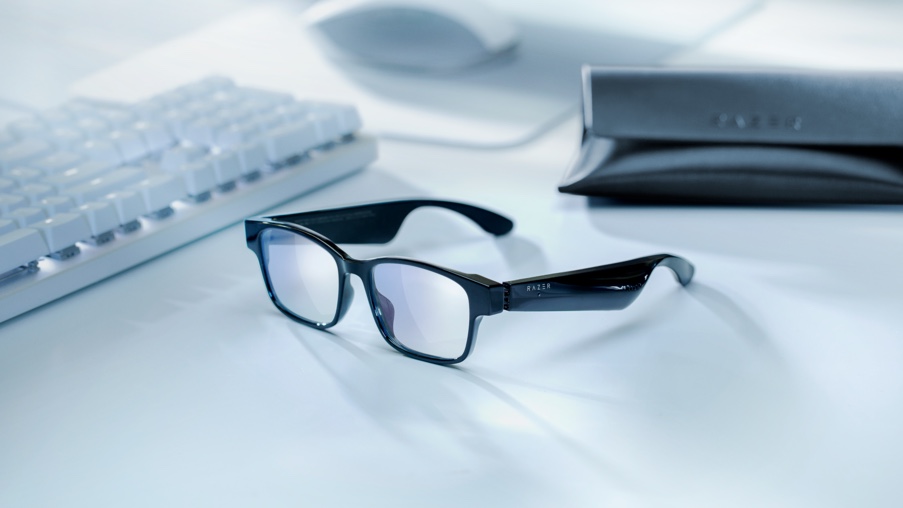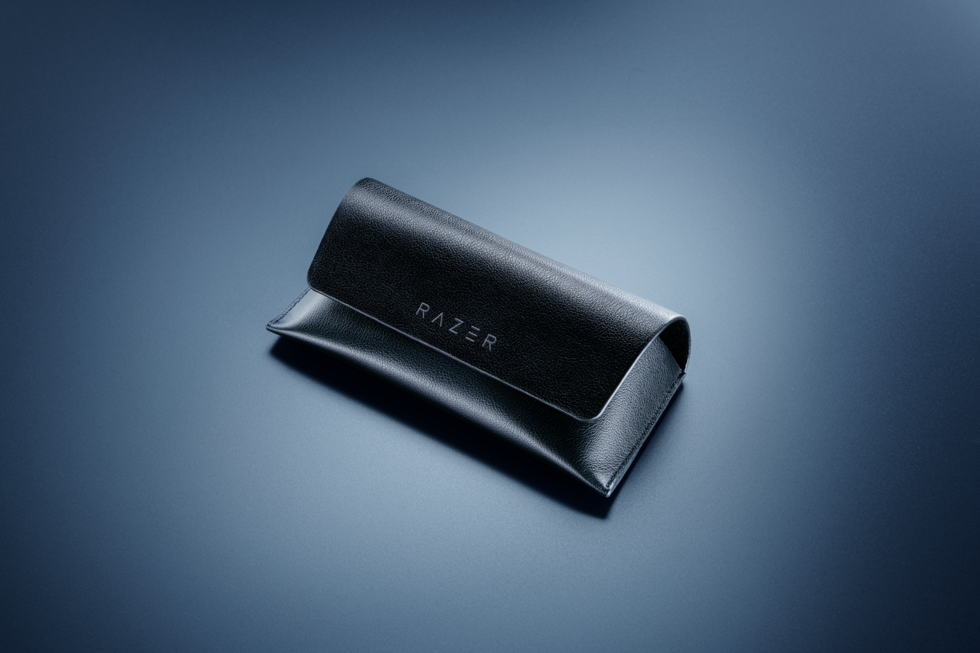Razer Anzu glasses are here to fight work-from-home fatigue
The new Razer Anzu glasses pack blue-light filtering and headphones

The Razer Anzu glasses are hoping to shift the focus of the smart glasses category onto personal health. Now that we're all spending a lot more time at home and in front of screens than ever before, these smart glasses are adding a feature that prescription glasses also have — blue light filtering.
On top of that, the Razer Anzu glasses match the Bose Frames and Amazon Echo Frames with their open-sound speakers and microphones. This way you'll be able to use them to an alternative to a headset during calls.
- The best blue light blocking glasses, ranked
- All the best monitors for working from home
- Plus: iPad Pro 2021 leak reveals new Apple Pencil design
Razer Anzu glasses price and availability
Razer Anzu glasses cost $199 in the US and €209 in Europe. They are available right now at Razer.com and Best Buy in U.S. and Canada. They will be sold in more stores in the coming months. That's $50 less than the Echo Frames and latest Bose Frames, both of which start at $250.
Inside the box you'll find a set of 99% UVA/UVB protective polarized sunglass lenses you can snap in, a USB-A charging cable, cleaning cloth and carrying case.

If you need prescription lenses with your glasses, you'll buy them through Razer's partner Lensable, which is offering 15%-off Rx lenses for those buying the Anzu glasses.
Razer Anzu glasses design
Razer is making two Anzu designs: one with rectangular frames and the other with circular frames. Each are available in small and large sizes.
We're excited to get the Razer Anzu glasses in our hands — and on our faces —because of their flexible hinges. When smart glasses don't fit your head properly, you can't get them re-fitted, unlike regular glasses which can be adjusted.
Sign up to get the BEST of Tom's Guide direct to your inbox.
Get instant access to breaking news, the hottest reviews, great deals and helpful tips.

Touch-sensitive controls at the temples of the glasses allow you to control music (play, pause, skip and previous) and your calls (answering, rejecting and ending). The controls are also used to activate your smartphone's virtual assistant and activate gaming mode, for lower latency sound.
The Anzu glasses have an IPX3 water-resistance rating, making them splash-proof. Hopefully you don't spill too much of your desk-side beverage on them.
Razer Anzu glasses blue light filtering
Razer rates the Anzu glasses as filtering 35% of the blue light that hits your eyes throughout the day. Studies have linked blue light to sleep trouble, and blue light filtering is now a common feature among prescription glasses.
For example, Warby Parker's glasses have optional blue-light filtering (rated filtering 34% of blue light, a hair below the Anzu glasses).

Razer Anzu glasses audio
Since we live in the Zoom era, it's only fitting that the Razer Anzu glasses have Bluetooth connectivity, with speakers and microphones built into the frames. This opens them up for use on a conference call at work, or for use when you're watching movies remotely with friends and family members.
Much like glasses from Amazon and Bose, this Razer wearable uses an open-ear design, projecting sound with omnidirectional speakers. It shouldn't be too loud, though, as audio is only meant to be heard by the wearer.
Razer's aiming for quality audio (which we'll be the judge of when we review the Anzu glasses) and it's using 16mm drivers to deliver palpable bass. Razer rates the audio as delivered at a low latency of 60ms, so you're hopefully not going to see much in the way of lag or audio delays.
Razer Anzu glasses battery life
Razer rates the Anzu glasses' Bluetooth connection as lasting more than 5 hours of continuous usage on a single charge. Your mileage may vary, though. Again, we can't wait to see how long these last when we get them in.
Razer Anzu glasses outlook
Razer's blue-light filtering looks to be the key way to separate the Anzu glasses from the Frames sold by Bose (which puts sound quality first) and Amazon (which promotes Alexa connectivity).
Whether blue-light filtering is enough of a perk to carve out a portion of the market remains to be seen, but the Amazon Frames' sound quality did not impress us when we reviewed those glasses. So if Razer makes these Anzu glasses sound good, they'll have at least a puncher's chance.
- Up next: What's Paramount Plus?

Henry is a managing editor at Tom’s Guide covering streaming media, laptops and all things Apple, reviewing devices and services for the past seven years. Prior to joining Tom's Guide, he reviewed software and hardware for TechRadar Pro, and interviewed artists for Patek Philippe International Magazine. He's also covered the wild world of professional wrestling for Cageside Seats, interviewing athletes and other industry veterans.
